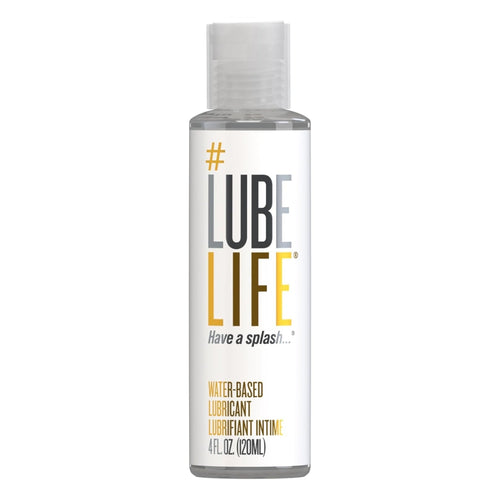Who doesn’t know it: you get close, you’re getting it on, the desire builds—and then the inevitable question pops up: “Do you have a condom?” followed by a brief pause to fetch one. Or… not.
But sex without a condom—does that make sense?
Summary
- Condoms protect against pregnancy and sexually transmitted infections (STIs).
- Sleeping with someone you don’t know, or have only just met, without a condom is risky.
- Many people barely notice a difference between sex with and without a condom.
Contents
- What does sex without a condom feel like?
- When is sex without a condom safe?
- Had sex without a condom?
1. What does sex without a condom feel like?
Many would say that sex without a condom feels like an endorphin explosion in the body (better than chocolate and gelato after a loooong dry spell). Simply more real and natural, more pleasurable and arousing—as if two people were merging. No barrier. Somehow more intimate and somehow closer. And—to be completely honest—simply wetter.
And yes, you can absolutely add moisture with lube, but sex without a condom means bodily fluids meeting bodily fluids, and it feels about as wet as it sounds. You feel every twitch and throb. To avoid stains on the sheets, mattress, sofa, or wherever else you're doing it, we recommend using a waterproof pad, such as a large so called 'Love Blanket'. This will keep everything clean and dry. More information is available here.
Maybe a lot of this is mindset. Sex without a condom is known to be riskier than safer sex, and some people find a bit of risk arousing.
More on those risks in a moment.
There are also people who feel little to no difference between sex with and without a condom. Sensation—like every person—is individual and unique.
Fit matters, too. Only a well-fitting condom is barely noticeable during sex. A condom that’s too wide or too tight isn’t just more likely to slip—it also just feels off.
2. When is sex without a condom safe?
There are plenty of ways and methods to protect against unwanted pregnancy. There are hormonal methods, like the pill or an IUD with hormones, and non-hormonal methods, like the copper IUD or a diaphragm.
Even if the pill works fine for some without major issues, it can also bring side effects, and many women who decide to stop taking it don’t have an easy time at first—acne, weight gain or loss, and so on.
But all of these methods generally don’t protect you from one thing:
Sexually transmitted infections (STIs).
And we’re not just talking about HIV. Syphilis, chlamydia, gonorrhea, and many others can also be transmitted through unprotected sex.
Almost one in two people becomes infected with at least one STI before the age of 25—wild, right?
Even if you’re in a years-long monogamous relationship where neither of you is having sex with anyone else, you can’t be absolutely sure. There are also things like yeast infections that can be passed to your partner without a condom.
Yeast infections can be triggered by wiping the wrong way after a bowel movement, antibiotics, too much hygiene (yep, you read that right), or a generally weakened immune system. And yeast infections are no joke, let me tell you. Another unwelcome guest after sex without a condom: a bladder infection!
Yes, unprotected sex can increase the risk of a urinary tract infection. Bacteria that normally live around the genitals or in the gut can enter the urethra during sex and move into the urinary tract, leading to an infection of the bladder. Also absolutely not recommended.
3. Had sex without a condom?
If you did have unprotected sex because you just couldn’t keep your hands off each other and it felt forbiddenly good, here’s what you can do now:
-
Emergency contraception (morning-after pill):
If you’re worried pregnancy might be possible and you’re not otherwise protected (no pill or IUD), the morning-after pill can be an option. Take it as soon as possible—ideally within 72 hours after unprotected sex. It’s available over the counter in most pharmacies. The sooner you act, the more effective it is. -
Visit your gynecologist:
If you’re concerned about STIs, it’s wise to get checked by a doctor. They can offer tests to make sure you haven’t contracted anything. Be honest about your sexual activity so they can run the right tests. Tell them everything that matters—don’t hold back! -
Regular contraception:
Regardless of this situation, it’s a good idea to use ongoing contraception to prevent unwanted pregnancies and STIs. Condoms, hormonal methods like the pill, the patch, or the ring, and intrauterine devices (e.g., IUDs) are some options. -
Open communication:
If you have a partner, it’s important to talk openly about sexual health and contraception. It helps you plan the best approach together and make sure both of you are protected. Ultimately, it’s no fun for either of you if you feel unwell after sex without a condom. Not worth it—promise! -
Self-care:
Whatever the situation, take care of your physical and emotional health. If you feel worried or stressed, seek support from friends, family, or a professional counselor.


